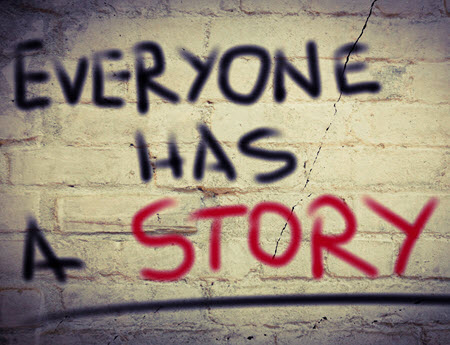 Here’s a story of hope.
Here’s a story of hope.
Changing what you experienced in childhood is impossible.
However, the stories you tell yourself about those events can change. Those stories are powerful but are subject to interpretation, can cause suffering, and impact how you think of yourself.
The body also tells a story of trapped emotions, resulting in constriction, digestive issues, numbness, complex sensations, and pain.
I can help you get through all those emotions. Trust me – you can heal!
But was it childhood trauma?
Knowing how to determine if it was childhood trauma gets confusing. Some events are more obviously traumatizing – physical and verbal abuse, accidents, surgeries, and loss.
The question is, did you get your basic needs met? Did you feel safe, loved, seen, and valued? Were you gradually given opportunities to experience your autonomy and connection?
Some of these critical elements are missing in early trauma. Childhood may have looked good on the outside, but well-meaning parents sometimes don’t get what their child needs.
 Different people have different stories.
Different people have different stories.
Lisa’s* childhood was tumultuous. As a kid, she hid in terror when she heard the shattering of glass and her father screaming at her mom. Lisa’s father volleyed insults at her, and there was no safety from the abuse.
Lisa was a survivor – she grew up, received an education, and escaped. Unfortunately, Lisa cared for others and not for herself. She questioned if her husband loved her. She didn’t feel worthy of what she did have, and the headaches and muscular pain were becoming a regular part of her life.
Noah* had a health condition that required surgery and hospitalization during his first year of life. As Noah healed, his parents anticipated his every need – in excess and for too long. Even after he recovered his health, he remained plagued with self-doubt, ruminating thoughts, and anxiety. Intimacy was difficult, and he was unable to set clear boundaries.
Emily* had well-educated parents with busy careers and social lives. They loved her, but they had a clear sense of who she should be and how she should think and feel. Emily never felt seen, heard, or prioritized. When she grew up, she figuratively divorced her parents because she had had enough. But now, Emily felt anxious and cut off from her body.
The individuals above had common symptoms with different causes.
When Lisa, Noah, and Emily visited me, they rarely felt safe.
Each struggled with feeling unvalued and unseen.
They carried shame and lacked self-compassion and self-love.
 Somatic Experiencing made a difference.
Somatic Experiencing made a difference.
Lisa’s, Noah’s, and Emily’s sessions all looked quite different but had elements in common. Somatic Experiencing was the primary modality used to address their issues.
We worked with stuck emotions held in the body and explored sensations with curiosity instead of fear. Through our sessions, they learned to recruit self-protective responses that weren’t available when they were a child. And they noticed how that felt in their bodies.
They dialogued with their inner child and other parts of themselves.
Those stories that caused their suffering in childhood changed, and new metaphors and images replaced unhelpful ones. The work was all anchored in the body.
The process is transformational.
Healing didn’t happen for Lisa, Noah, or Emily all at once.
They each healed gradually while someone guided, listened, and calmly reminded them that they had survived the worst.
These clients courageously felt their emotions and sensations – despite initially thinking it would be too overwhelming. They processed and released the trauma; hunger for change consumed all three of them.
They did it, and so can you!
The payoff is worth the effort.
Lisa, Noah, and Emily developed the confidence to take on new challenges. Because their boundaries became clear, they were more available to be present and enjoy their relationships.
Their bodies became safe places, and they developed the ability to recognize outside sources of safety and danger.
They started tuning into and prioritizing their needs.
You can heal from early trauma. Don’t let your past become your future. Let’s do this together.
Call today for a 20-minute free phone consultation: (413) 949-9132.
*Names and stories are composite narratives and do not reflect actual clients.

